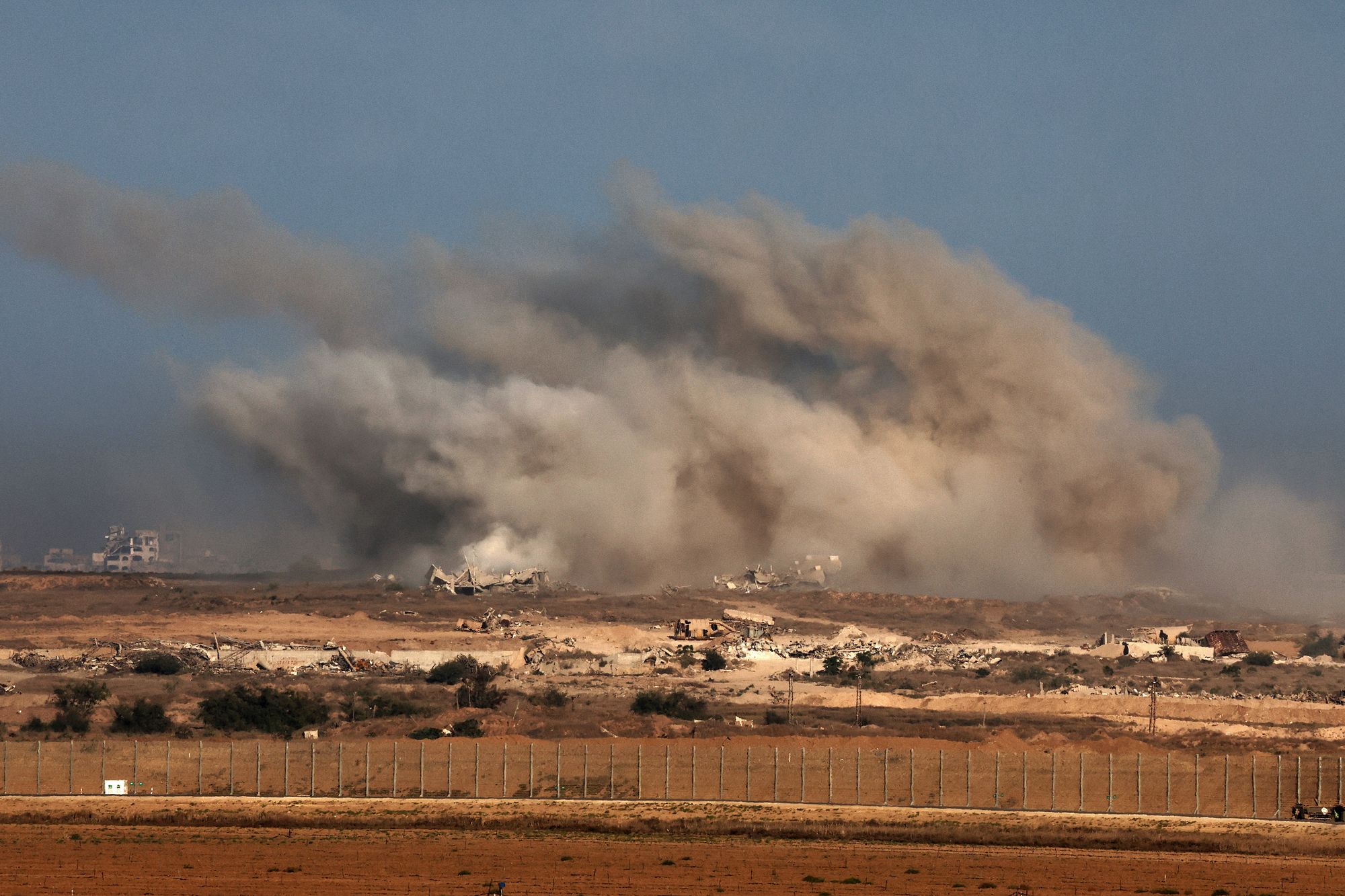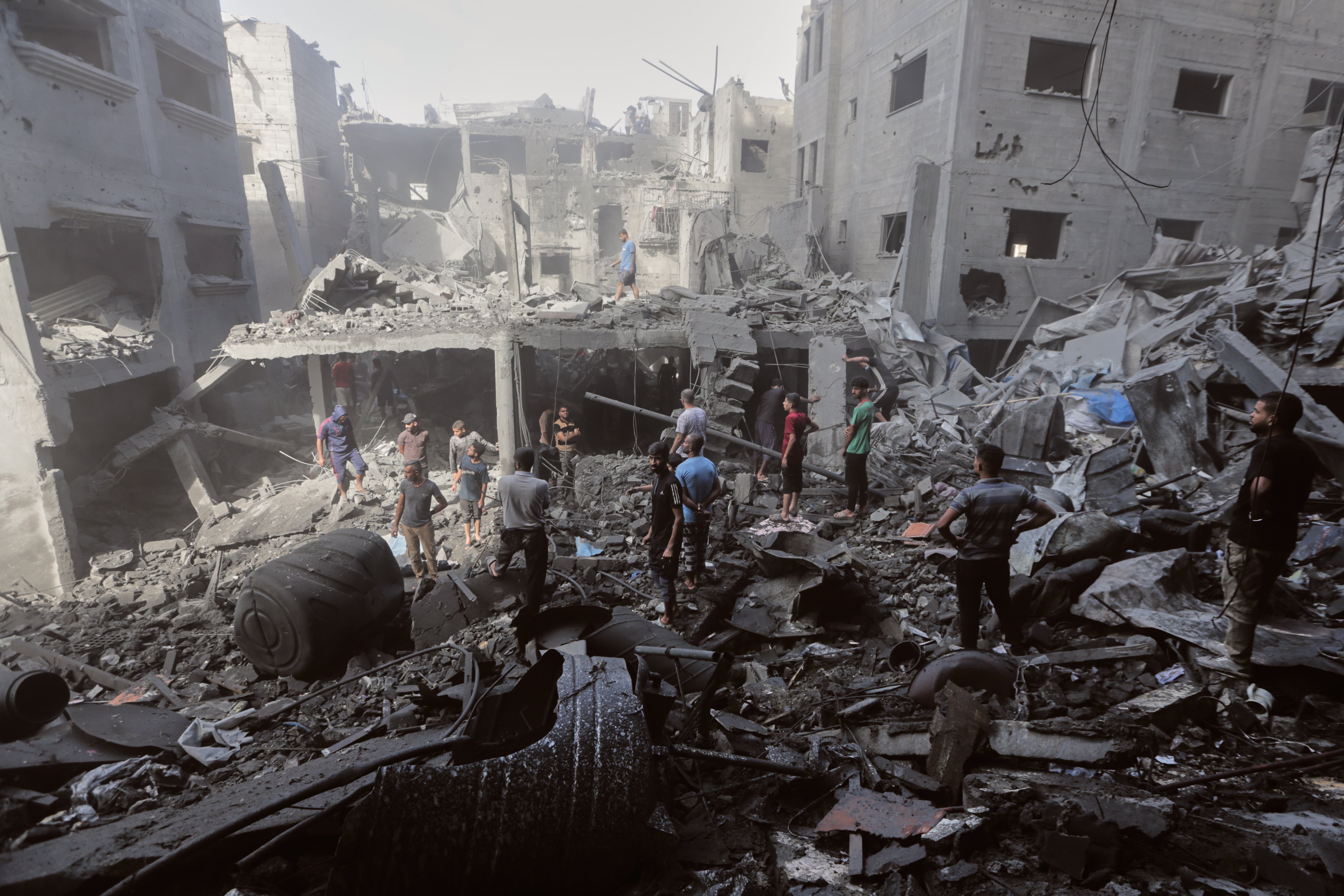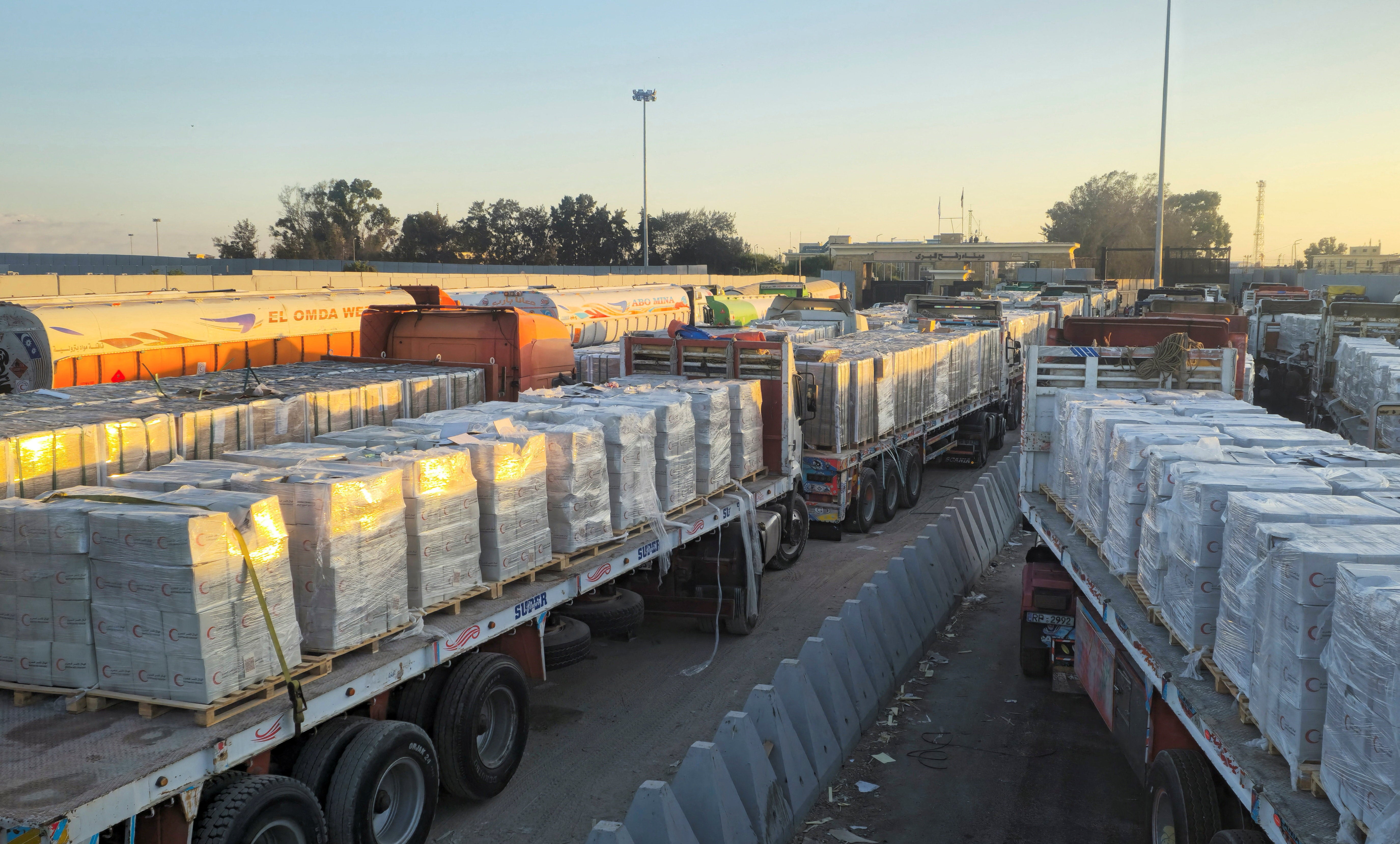Israel has been accused of blocking “10,000 truckloads” of aid from crossing into Gaza, with Jordan, the UK and prominent rights groups among those voicing condemnation.
Since a shooting at the border seven weeks ago, Israel has refused to allow aid from Jordan to enter Gaza via Israel.
That means 10,000 truckloads – including 6,000 belonging to the World Food Programme (WFP) partner and 3,000 to the Jordanian authorities – are gathering dust despite the urgent need, Jordanian government sources told The Independent.
In tandem, the Norwegian Refugee Council (NRC) said since the start of the US-brokered October ceasefire, the Israeli authorities have rejected 23 requests to deliver aid from nine aid agencies.
That means nearly over 1,600 metric tonnes of aid items – including tents, bedding, kitchen sets and blankets – are stuck in Jordan, Egypt and Israel.
It comes just days after UK foreign secretary Yvette Cooper visited British-purchased supplies stuck in warehouses in Jordan, where she urged more crossings to open, warning that “the people of Gaza cannot afford to wait”.
In Jordan, officials urged world leaders to pressure Israel to allow waiting aid trucks to cross, as the route from the country is one of the main thoroughfares for supply delivery.
Israel had barred aid from Jordan from entering Israel for Gaza after a Jordanian civilian truck driver opened fire at the border, killing two Israeli soldiers, in September.

Another shooting by a retired Jordanian soldier had taken place the year before. Israel has since said it needs to install new security and search procedures, but Jordan says that is taking too long, given the urgency of the humanitarian crisis.
“Foreign governments and the whole international community must put all needed pressure in order to allow the flow of aid through Jordan,” the Jordanian government source said, adding that the entry of aid is “imperative” to easing tensions and building confidence in the ceasefire process. The source said that each truck carries around 22 tonnes of supplies.
“It is absolutely essential for aid to enter Gaza because the humanitarian situation is extremely difficult, with the population suffering from a lack of food supplies.
“Jordan has been a trusted partner that delivered and facilitated the flow of aid with other states during the most difficult times. Jordan has the knowhow, the connections and the experience needed for effective aid delivery. It also has a large quantity of aid ready to go to Gaza.”

Israel has repeatedly denied constraining aid to Gaza.
Cogat, the Israeli military unit tasked with coordinating with Palestinians, told The Independent that Israel is “fully committed” to its obligation to facilitate the entry of humanitarian aid trucks as laid out in the ceasefire plan.
It said hundreds of trucks carrying food, water, fuel, gas, medicines, medical equipment, tents and shelter supplies enter the Gaza Strip every day, in coordination with the UN, international organisations, donor countries and the private sector.
Israel has in the past blamed Hamas fighters for any food shortages, accusing them of stealing food aid before it can be distributed, which the militant group has denied.

A key component of the truce brokered by Donald Trump was the massive influx of badly needed aid across the tiny, crowded enclave, where famine was confirmed in August and where almost all of the 2.3 million inhabitants have lost their homes to Israeli bombardment.
However, citing the WFP, Reuters reported that only half the needed amount of food is coming in, while an umbrella group of Palestinian agencies said overall aid volumes were between a quarter and a third of the expected amount.
The UN’s aid coordination office, OCHA, said on Monday that the heavily destroyed north of Gaza was the worst hit: no food aid convoy has reached the north via any direct crossings since 12 September.
Abeer Etefa, a WFP spokesperson, said that access to food there remains “severely limited” – and urged that more than two crossings need to be opened immediately.
The NRC on Wednesday warned that 1,699 metric tonnes of supplies – the equivalent of millions of shelter and non-food items – are stuck in Jordan, Egypt and Israel awaiting approval. That leaves around 260,000 Palestinian families, equal to nearly 1.5 million people, exposed to worsening conditions as winter has set in.
“More than three weeks into the ceasefire, Gaza should be receiving a surge of shelter materials, but only a fraction of what is needed has entered. The international community must act now to secure swift and unimpeded access,” said Angelita Caredda, NRC’s Middle East and north Africa regional director.
The NRC blamed “prolonged and opaque customs requirements” imposed by Israel for the hold-up, adding that the window to get more supplies in before winter set in was rapidly closing.
Germany bans one Muslim group and raids two others amid antisemitism claims
Pope Leo meets Palestinian President Abbas, discuss urgent need for Gaza aid, two-state solution
More than 700 officers deployed and protest planned for Aston Villa-Maccabi game
Meet one of Gaza’s few prosthetic experts helping the thousands who have lost limbs
Hamas returns body of Israeli-US soldier held hostage by Palestinian militants
Greta backs UK student who fears for his safety after visa sponsorship revoked







